
Theodor "Teddy" Kollek was an Israeli politician who served as the mayor of Jerusalem from 1965 to 1993, and founder of the Jerusalem Foundation. Kollek was re-elected five times, in 1969, 1973, 1978, 1983 and 1989. After reluctantly running for a seventh term in 1993 at the age of 82, he lost to Likud candidate and future Prime Minister of Israel Ehud Olmert.
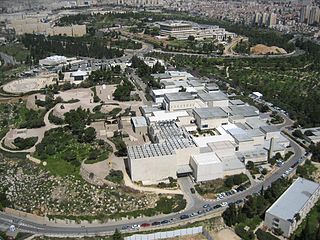
The Israel Museum was established in 1965 as Israel's foremost cultural institution and one of the world’s leading encyclopedic museums. It is situated on a hill in the Givat Ram neighborhood of Jerusalem, adjacent to the Bible Lands Museum, the Knesset, the Israeli Supreme Court, and the Hebrew University of Jerusalem.

Dalia Itzik is a former Israeli politician who last served as a member of the Knesset for Kadima. She has previously served in several ministerial positions, and on 4 May 2006 became the first female speaker of the Knesset, and served as President of Israel in an interim capacity from January to July 2007.
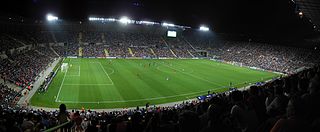
Teddy Stadium is a sports stadium in the Malha neighborhood of Jerusalem, Israel. Four football teams currently use the stadium: Beitar Jerusalem, Hapoel Jerusalem, and the Israel national football team for select home matches.
The Sam Spiegel Film and Television School is a film and television school in Israel that was founded in 1989. It was renamed in honor of Sam Spiegel in 1996, with the support of the Sam Spiegel Estate.
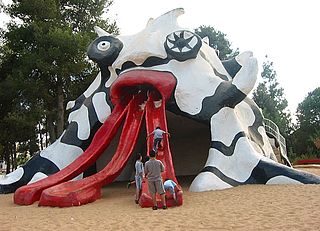
Kiryat HaYovel is a neighborhood in southwestern Jerusalem on Mount Herzl. It was built in the early 1950s to house new immigrants. Today, Kiryat HaYovel has a population of 25,000 residents.

Elinor Carucci is an Israeli-American Fine Art Photographer. She is based in New York City.
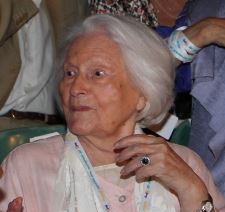
Lia van Leer was a pioneer in the field of art film programming and film archiving in Israel. She was the founder of the Haifa Cinematheque, the Jerusalem Cinematheque, the Israel Film Archive and the Jerusalem Film Festival.
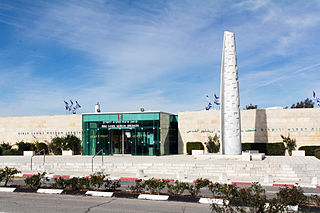
The Bible Lands Museum is an archaeological museum in Jerusalem, Israel, that explores the culture of the peoples mentioned in the Bible, among them the ancient Egyptians, Canaanites, Philistines, Arameans, Hittites, Elamites, Phoenicians and Persians.
Ahuva Sherman is an Israeli artist who works in oil, pastel, and wall tapestries.
The Jerusalem Foundation is a nonprofit foundation that promotes the development of the city of Jerusalem, by raising funds for social, cultural and beautification projects. Established in 1966 by West Jerusalem mayor Teddy Kollek, it has contributed hundreds of millions of dollars to the city's budget and established parks, gardens, forests, recreational sites, theaters, and museums; restored ancient sites, synagogues, mosques, and churches; funded community and social centers, preschool centers, and health clinics; and sponsored archeological excavations, scholarships, and cultural events. The Jerusalem Foundation is unique in its structure and mission, as it funds municipal projects with private donations from international sources.
Keter Publishing House is one of the largest publishers in Israel. Keter has a large book marketing and distribution network, as well print services and book production for the Israeli domestic and export market. Keter is the most prominent publisher of contemporary Hebrew literature in Israel. Keter also published the first edition of the Encyclopedia Judaica and is a co-publisher of the Junior Britannica.
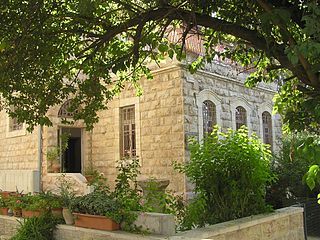
Beit Ben-Yehuda is a historical home built in Arnona-Talpiot Neighborhood in Jerusalem for Eliezer Ben Yehuda, known as "the reviver of the Hebrew language".

Yolande Harmer was an Israeli intelligence officer who operated in Egypt in 1948. She was recruited due to her connections in elite and royal circles, she has been described as "Israel's Mata Hari". A town square in Jerusalem, 'Yolande Harmer Square', is named after her.
Nurit Yarden is an Israeli Art photographer, who lives and works in Tel Aviv.

James S. Snyder is Executive Chairman of the Jerusalem Foundation. An art historian and museum director, Snyder is Director Emeritus of the Israel Museum in Jerusalem and a Senior Fellow at the Middle East Initiative at the Harvard Kennedy School.

Teddy Park, also known as Teddy Kollek Park, is a public park situated opposite Jerusalem's Old City and David's Citadel, and integrated with the Hutzot HaYotzer Artists complex in the Mitchell Parks & Gardens. The park was developed by the Jerusalem Foundation in memory of Jerusalem's long serving mayor, Teddy Kollek, and opened to the public in 2013.
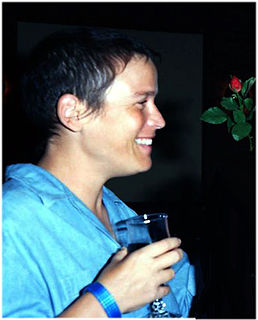
Vardi Kahana is an Israeli photographer.

Frank Sinatra was a strong supporter and activist for Jewish causes in the United States and Israel. According to Santopietro, Sinatra was a "lifelong sympathizer with Jewish causes". Sinatra participated in Hollywood protests and productions supporting Jews during the Holocaust and the formation of the State of Israel. He actively fund-raised for Israel Bonds, the Hebrew University of Jerusalem, and the Simon Wiesenthal Center, and helped establish two intercultural centers in Israel which bear his name. Due to his support of Israel, his recordings and films were banned by the Arab League and by Lebanon.
Hannan Abu-Hussein is a Palestinian artist and educator living and working in Jerusalem.














